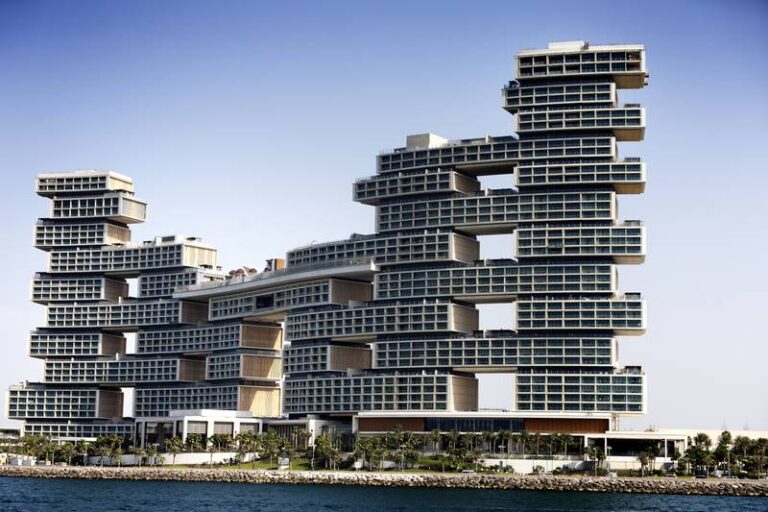Hotels in Dubai ended 2022 with a strong performance across industry metrics in December as tourists flocked to the city after travel restrictions eased, drawn by cooler weather and new year celebrations.
Revenue per available room (RevPar), a key gauge of performance for the hotel industry, last month rose to Dh684 ($186), up 31.1 per cent on December 2019, prior to the Covid-19 pandemic, according to hospitality data and analytics specialist STR.
The average daily rate (ADR) of hotels in December increased to Dh892.84, up 33.8 per cent on pre-Covid levels in the same month in 2019, STR said on Wednesday in its monthly report.
“ADR and RevPar were well above pre-pandemic levels throughout the year,” the London company said.
Dubai hotels have adapted their rates in line with global pricing trends, said Kostas Nikolaidis, STR’s Middle East and Africa executive.
“December has always been a strong performing month in Dubai with New Year’s Eve traditionally delivering the highest hotel performance of the year with many hotels selling out,” he said.
“Overall, tourism demand has been returning to Dubai throughout 2022 and December was no exception with 397,910 more rooms sold, representing a 13 per cent increase over 2019. As a result, it comes as no surprise to see RevPAR levels higher than 2019.”
Meanwhile, hotel occupancy rates reached 76.6 per cent in December, 2 per cent below their levels in December 2019, according to preliminary data from STR.
December daily data by STR shows Dubai hotels’ recorded their highest performance on New Year’s Eve, when occupancy hit 91 per cent, ADR jumped to Dh1,765.51 and RevPar increased to Dh1,606.74.
With the exception of four days, daily occupancy levels during the month were above 70 per cent.
Dubai’s hospitality industry had a strong year in 2022, benefiting from an influx of tourists eager to travel after two years of pandemic-related lockdowns and attend mega events such as Expo 2020 Dubai and the Fifa World Cup in Qatar.
Dubai, the Middle East’s tourism and business centre, was ranked second last year in a list of the top 100 most attractive city destinations compiled by Euromonitor International. The emirate ranked behind Paris and ahead of Amsterdam, Madrid and Rome in the top five cities in the global index for 2022.
Dubai hosted 12.82 million overnight international visitors in the first 11 months of 2022, more than 85 per cent of the pre-coronavirus levels during the same period in 2019, according to the latest available data from Dubai’s Department of Economy and Tourism.
The emirate’s 11-month performance is also more than double the 6.02 million people who visited the city in the same period in 2021, the government data showed.
The figures from January to November were 3.91 million visitors shy of its full-year 2019 performance of 16.73 million tourists.
Business activity in Dubai’s non-oil private sector economy was strong in December, rising to 55.2, from 54.9 in November, comfortably above the neutral 50 mark separating expansion from contraction, according to the emirate’s seasonally adjusted S&P Global purchasing managers’ index (PMI).
The travel and tourism sub-component of the survey climbed two basis points in December to 53.4.
“The reopening of China should provide a fillip to the sector, although this will be offset by the impact of a global slowdown on visitors from other countries,” Daniel Richards, Mena economist at Emirates NBD, said in a Dubai PMI note on Tuesday.
Looking ahead, “the future is bright for the industry” as the UAE hospitality sector is investing about $32 billion to acquire 48,000 more hotel rooms to bring the total to 200,000, according to a report by global auditing company KPMG.
“These developments place the UAE in an enviable position to navigate travel and hospitality demands in 2023, equally driving economic growth by creating employment opportunities,” said Sidharth Mehta, partner and head of real estate at KPMG Lower Gulf.
Although the global headwinds of inflation and economic recession fears “may potentially have some impact” on room rates in the future, Dubai’s hospitality sector has performed “extraordinarily well” and seems poised for growth in the coming years, the report said.
In a separate statement on Wednesday, neighbouring Ras Al Khaimah said it hosted a record number of annual visitors in 2022, exceeding pre-pandemic levels despite global “geopolitical and economic challenges”.
The emirate hosted 1.13 million overnight arrivals in 2022, an increase of 15.6 per cent on 2021, Ras Al Khaimah Tourism Development Authority (RAKTDA) said in a statement.
Growth drivers include the opening of new attractions, hosting corporate and sports events, forging partnerships with airlines to grow source markets and undertaking roadshows in markets worldwide to promote the destination.
Of the 1.13 million visitors to the emirate in 2022, nearly 500,000 were international tourists, up by 40 per cent year-on-year, according to RAKTDA. Key source markets included Kazakhstan, Russia, the UK, Germany and the Czech Republic.
In December, the emirate recorded a 23 per cent year-on-year increase in visitor arrivals to 128,000 people.
New hotels and resorts opened in the emirate in 2022, increasing its inventory by 17 per cent to total more than 8,000 hotel rooms.
The Intercontinental Hotels Group, Movenpick and Radisson brands entered the emirate for the first time with the opening of the InterContinental Mina Al Arab, Movenpick Resort Al Marjan Island and the Radisson Resort Ras Al Khaimah Marjan Island.
About 5,867 hotel rooms are scheduled to be added to the supply over the next few years, a 70 per cent increase on current inventory, the tourism authority said.



